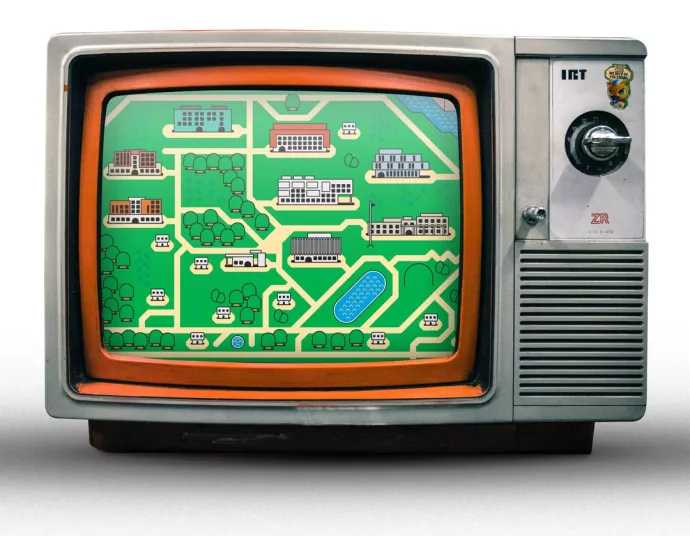UTM transforms into all-day play zone to launch new game studies program

On Thursday, Nov. 9, University of Toronto Mississauga will undergo a kind of metamorphosis, shifting from a place of serious scholarship and research into an extended play zone, with stations for giant Jenga blocks, video games, an inflatable obstacle course and even a storytelling hub.
The focal point, at the Student Centre, will be a giant hopscotch court, to be co-created by anyone who turns up at 9:30 a.m. and swaps out their laptop for pavement chalk.
The organizers, however, are entirely serious about the significance of the event, a joint venture of the Department of English and Drama and UTM's Institute of Communication, Culture and Information and Technology.
The Day of Play, followed by a symposium on the role of games in our society, marks the official launch of UTM's game studies program and the accompanying archive of 14,000 computer games, consoles, magazines and related items known as the Syd Bolton Collection.
The goal, says associate professor of drama Lawrence Switzky, "is to establish and promote UTM as a place where game studies, teaching and research and experiential education happens by making the campus come alive with games."
UTM has been building a presence in the multi-disciplinary world of game studies for several years, but this curriculum initiative has seen its profile increase with the establishment of a new minor as well as the acquisition of the Bolton collection and, more recently, the archives of the Electric Playground, a long-running Canadian video-game show.
"Play and games are as old as recorded history," says Christopher Young, UTM library’s head of collections and digital scholarship, and the chief archivist of the Bolton/Electric Playground materials. "Some of the oldest artifacts and objects [are] dice or cuneiform tablets with rules on them. That speaks to how universal play is and formalizing it into a game that's based on the cultural and political history of the people at that time."
The games studies minor cuts across a range of disciplines and deals with topics as far-ranging as narrative, design and business. Students also learn the principles and methodologies of testing, role-playing and the use of game engines. The two collections, the cataloguing of which is almost complete, serve as a research tool.
An important theme that runs through the learning is that play, which is often seen as an activity for children, actually and appropriately intersects with life in all its ages and stages. "To my mind, play is not preparation for what you do later on in life," says Switzky.
Adds Young: "Play transforms us and it transforms the spaces we move in."
They both note that adding play and playfulness to the campus offer a bit of respite from the usual routine.
"If this can make people not think about what's happening for five minutes and bring a playful experience that makes their day better, I'm all for that," says Young. "Hopefully, that is the experience people will get from engaging in some of these different spaces."
The Game Studies launch and symposium takes place in the UTM Library and online on Nov. 9, from 3 p.m. to 6 p.m. The event is free and open to all students, faculty and members of the public. Register here
For a full list of Day of Play activities, please visit the info page




